Essential Steps Before Writing Your Book
Now that you’ve decided to write a book, you might be wondering, “Where do I begin?”
The answer to that question might surprise you: don’t start at the beginning.
There is a little prep work that needs to happen before you start writing, regardless of how well you know your subject. So really, you begin writing your book before you actually begin writing.
That sounds so Zen, but not very helpful, we know. So, to elaborate…
Before you start writing a book, it’s important to get clear on what’s in two different buckets of information:
- Bucket #1: The reader. Who are they? What is going on with them that made your book resonate with them? What are their goals for your book—why do they think your book is worth part of their paycheck?
- Bucket #2: You, the author. Who are you as the provider of the information in the book? What are your goals for the book? What is motivating you to write it?
The clarity you glean as you define those buckets will ultimately be what gets you writing, keeps you writing in the correct direction, and helps you finish your book. How? Let’s answer that by first talking about what goes into those buckets.
The Reader
Getting to know your reader means you really think through the kind of person who will get the most out of your book.
- What demographics define them? What is their age range? What is their socio-economic status? What kinds of career might they have? How much free time do they have? What do they do in their free time?
- What kind of problem are they having that is triggering them to look for a book like yours?
- If you’re writing fiction, then the problem is they are looking for entertainment or a distraction.
- If you’re writing nonfiction then there may be a few options for answering this question depending on what kind of book you’re writing: knowledge share, inspirational/motivational, or memoir/autobiography.
- Knowledge-share books usually provide one of three things: an explanation of circumstances or situations that your reader might find themselves in, a solution to a problem they’re having, or a way to relieve a pain point. So the question to answer here is, “What is your reader experiencing that your book will help from a knowledge-share perspective?”
- Inspirational/motivational books offer hope or a pathway to peace, love, or more joy in people’s lives. What is your reader feeling or experiencing that is making them want something inspirational or motivational?
- Memoir/biography books can be similar to fiction, in that they are offering a distraction from the daily grind, but the good ones also include a knowledge-share factor and/or inspiration/motivation.
- Once you know what’s triggering your reader to look for and even purchase your book, then the next questions to ask about your reader are, “What are they expecting from me? What is their goal for reading this book?”
- For fiction, they are expecting you to fulfill specifics that make up for the genre you’re writing in. The very least they’ll expect is a solid storyline in a narrative arc that makes sense, fully fleshed-out characters, and a protagonist with a clear GMC (goal, motivation, and conflict—we’ll cover that in a later post).
- For nonfiction:
- Knowledge-share books provide clarity, explanations, or background information that makes present-day events sensical. These books might also provide solutions; give step-by-step instructions; or talk about how to fix problems, create cultures and circumstances, or find success via a particular pathway.
- Inspirational/motivational books provide just that: inspiration or motivation to get through the day, to rebound after adversity, or to find hope in the darkness.
- Memoir/autobiography, again, does a combo of both fiction and nonfiction.
You, the Author
Now that you’re clear on who your reader is, why they want your book, and what they want your book to do for them, you can look at yourself and what’s motivating you to write. Questions to ask yourself are:
- Who are you as the provider of the information in the book? What special insight, education, skillset, knowledge, experience, or characteristic do you have that makes you the ultimate person to write the book?
- What are your goals for the book? (Please don’t say you want it to be a New York Times bestseller or something of that nature—that’s something else we’ll discuss at a later date). What are your real goals for the book? Aside from saying “I want to be a NYT bestselling author” or “I want Oprah to say it is one of her favorite books,” there are no wrong answers here. Do you just want to experience the fun and intrigue of writing? Do you want to create something to use as your business’s calling card? Are you creating a course or workshop and want to use the book as a coordinating product? Do you want to express a message or opinion? Do you want to tell a story to help others learn from your mistakes so they don’ have to learn from their own? Or is there something else?
- What is the main message you want to send with your book?
- How do you want to feel after you write it?
- What is motivating you to write it? What is your why for this process? Writing a book can take a long time, can be soul-crushing as well as soul-rewarding, can be emotionally cathartic (which can also be emotionally draining), and can make you question your sanity. So…why are you doing it?
Now What?
If you’re still with us and haven’t been scared away, that probably means you’re willing to go through all the above questions before you start writing your book. Trust us, you’ll be glad you did.
The answers you glean will provide profound insights on a number of fronts. They will help you get complete clarity on what your book is about. They will help you know where the book should begin and end. They will help you figure out the appropriate voice, tone, and style of the writing. And, perhaps most important, they will help you keep writing.
Inevitably when writing a book, an author hits the proverbial wall and can’t figure out what to write next. By revisiting the questions and answers above, they can re-ground themselves in the mission of the book, find their internal compass, and voila! They just know what to write next. At other times, authors will realize that in the middle of a sentence (paragraph or even chapter), they’ll discover they’ve completely veered off course from their original message. By going over the questions and answers, they can see where they left the path and why. They’ll be able to see how they can correct course—whether through cutting out completely or revising the content—and carry on.
Without taking the time to set yourself up to write by thoroughly knowing your reader and yourself as a writer, you risk writing, writing, and doing more writing only to find your book just “doesn’t feel right.” You’ll struggle over where, exactly, you should begin writing. Once you start, you’ll discover redundancies, holes in the narrative that you don’t know how to fix, and you may never know when to end the book.
In our author coaching one-on-one program and book courses, we take the time at the very beginning to gain clarity on the reader and author. We ask all the above questions and even more. Frequently, our clients try to get us to skip over it, insisting they already know what they need to know, so this is all a waste of time. But never once have any of them regretted us sticking to our guns and insisting they do all the “before” work. It always pays off in the end.
If you’d like to receive a sneak peek into our coaching or courses, fill out the form below and we’ll provide a free resource to help you get started. This resource is from the Before You Begin chapter in our upcoming book and workbook and is based on our one-on-one coaching program and course.
Leave a Comment
You must be logged in to post a comment.


